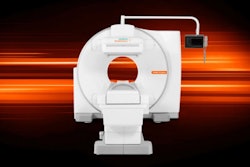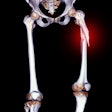Dear Molecular Imaging Insider,
As an Insider subscriber, you get an exclusive first look at a new study from researchers at Oakland University William Beaumont School of Medicine: They found that by characterizing non-small cell lung cancer tumors through glycolytic activity and FDG-PET volume after stereotactic body radiation therapy, clinicians may be able to detect which tumors are likely to recur.
If these locally recurrent tumors are detected, earlier and more effective treatment can be developed, according to the group. The findings were presented at last week's American Society for Radiation Oncology (ASTRO) annual meeting in Boston. Read more about the study by clicking here.
In other features, PET/CT with a sodium fluoride (NaF) radiopharmaceutical showed high sensitivity in detecting bone metastases caused by prostate cancer. In a comparison with diffusion-weighted MRI (DWI-MRI), Swedish researchers found that NaF-PET/CT achieved greater sensitivity, while DWI-MRI achieved greater specificity in discovering bone metastases, offering evidence that both modalities may be more efficient than bone scintigraphy.
Also in this edition are details of a five-year analysis of Medicare beneficiaries with cancer, which found greater utilization of PET imaging among white patients with higher incomes in areas of higher Medicare spending. While the use of PET increased among both black and white cancer patients from 2004 to 2008, black Medicare beneficiaries had lower rates of PET utilization compared to whites, with the difference between the two groups widening during that period.
In addition, in a study by Australian researchers, PET imaging with carbon-11-labeled Pittsburgh Compound B showed that high amounts of beta-amyloid plaque in the brain may be a better predictor of future memory loss in mentally healthy older people than the apolipoprotein E (APOE) ε4 allele.
And the clock continues to tick for molecular breast imaging (MBI) developer Gamma Medica, which, as of October 10, had three months to find additional financing or reorganize itself after a bankruptcy court approved a temporary financing plan. The outcome could affect the nascent market for MBI technology.
On Thursday, November 8, we will publish our Road to RSNA Molecular Imaging Preview, which will include summaries of upcoming highlights and noteworthy research presentations at this year's RSNA annual meeting. Once again, AuntMinnie.com will be onsite throughout the conference to detail all the developments in Chicago.




















